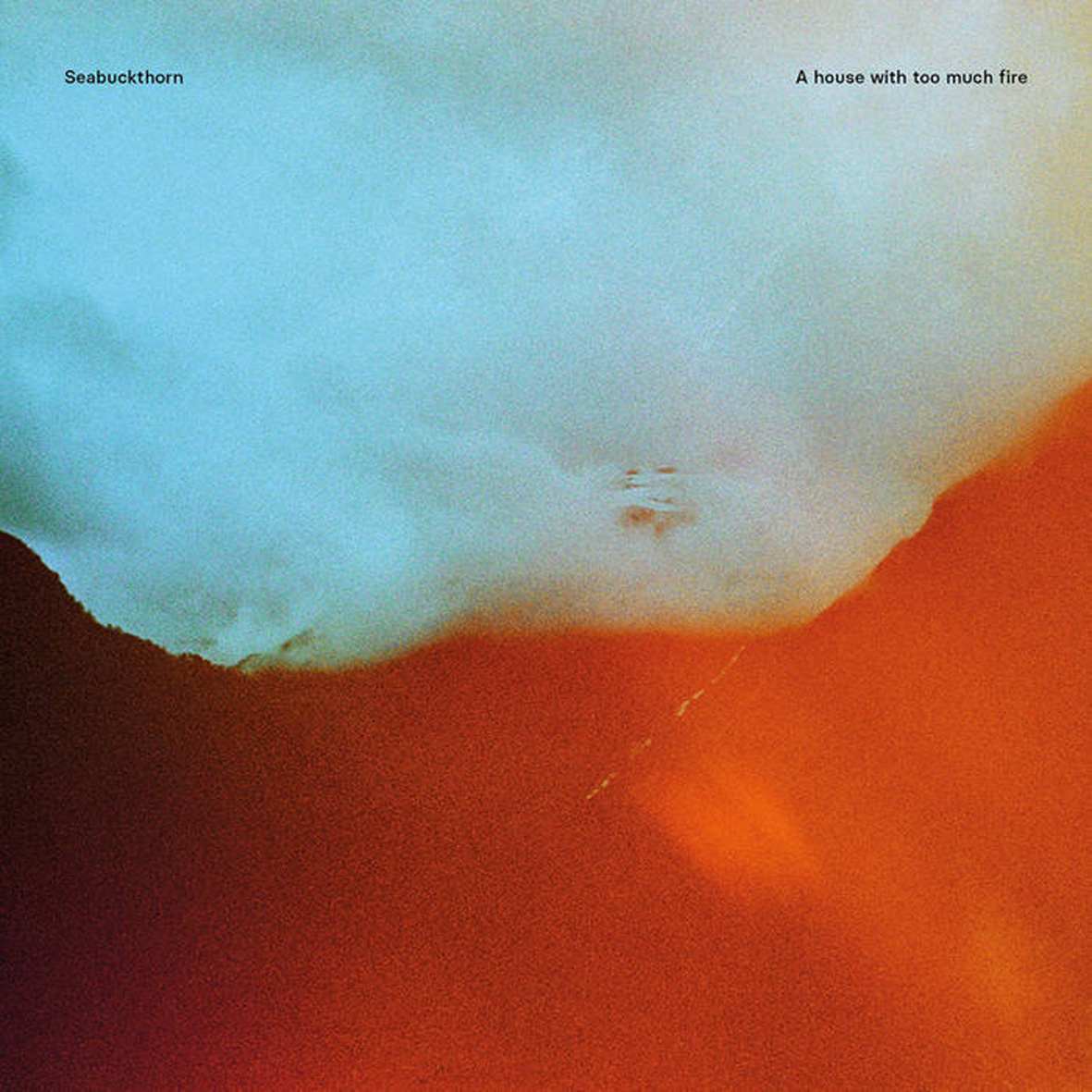Seabuckthorn, "A House With Too Much Fire"
 For some reason, this long-running project from English guitarist Andy Cartwright has stayed largely under my radar until now, despite my occasional brushes with his work through various blogs and his splits with Dean McPhee and Loscil. This latest release, Seabuckthorn's ninth, is deeply influenced by Cartwright's rustic and mountainous new surroundings in the Southern Alps, yet his work has always had an earthy, widescreen grandeur. As I am only casually familiar with the rest of the Seabuckthorn oeuvre, I cannot confidently state that Cartwright's new environment or recent focus on textural experimentation have radically transformed his work, but A House With Too Much Fire definitely feels like an especially strong showing. Much like the aforementioned McPhee, Cartwright has carved out a sublime and alternately haunting and gorgeous niche all his own, far transcending my expectations of what a lone guitarist can achieve (though Cartwright certainly embraces a much more expansive palette than his peers).
For some reason, this long-running project from English guitarist Andy Cartwright has stayed largely under my radar until now, despite my occasional brushes with his work through various blogs and his splits with Dean McPhee and Loscil. This latest release, Seabuckthorn's ninth, is deeply influenced by Cartwright's rustic and mountainous new surroundings in the Southern Alps, yet his work has always had an earthy, widescreen grandeur. As I am only casually familiar with the rest of the Seabuckthorn oeuvre, I cannot confidently state that Cartwright's new environment or recent focus on textural experimentation have radically transformed his work, but A House With Too Much Fire definitely feels like an especially strong showing. Much like the aforementioned McPhee, Cartwright has carved out a sublime and alternately haunting and gorgeous niche all his own, far transcending my expectations of what a lone guitarist can achieve (though Cartwright certainly embraces a much more expansive palette than his peers).
I am not quite sure what I expected from this album, but I am absolutely certain that whatever vague expectations I had were either transcended or outright wrong.This is quite a curious and fascinating album to try to wrap my head around, as Cartwright seems to be equal parts visionary and chameleon.It is easy to see how Seabuckthorn acquired such a devoted cult following over the years though, as Cartwright's inspiration burns quite brightly during the album's best moments, occasionally calling to mind the timeless, elemental power of prime Richard Skelton.More often, however, Cartwright feels like a kindred spirit to iconoclastic American composer and Lost Tribe label mate William Ryan Fritch, as the two artists channel very similar strains of melancholy and cinematic Americana (though Fritch is considerably more eclectic these days).Along with Aaron Martin and Western Skies Motel, the two seem like the incipient vanguard of an unnamed movement that I will tentatively dub The Haunted West which inventively blurs the lines between folk, modern composition, and atmospheric post-rock a la Mogwai and Explosions In The Sky.The finest example of that vein on A House With Too Much Fire is probably "It Was Aglow," which unfolds as a mournful cascade of banjo arpeggios that casts off a spark-like spray of spectral, delay-heavy ripples."What The Shepherds Call Ghosts" is similarly dazzling, as Cartwright unleashes a roiling web of rapidly picked arpeggios as a gently plucked melody winds its way through a rattling and moaning gauntlet of tormented strings.If the whole album had expanded that aesthetic into a focused vision, A House With Too Much Fire would likely be a stone-cold masterpiece.The rest of the album occasionally does delve further into that theme beautifully (the title piece, "Sent in by the Cold," etc.), yet Cartwright's mercurial muse led him in some other interesting directions as well, resulting in a bit more of a complicated and shifting affair.
In some cases, Cartwright's divergence from the expected path pays off beautifully, as the slowly churning string elegy of "Somewhat Like Vision" burrows even deeper into the past to evoke a deep, primeval sadness that predates anything resembling America.Elsewhere, "Disentangled" is a foray into languorous and lyrical Eastern-tinged desert blues."Figure Afar" is yet another departure of sorts, as Cartwright sets aside his guitar and banjo for a churning reverie of mournful bowed strings.Unfortunately, there is also one perplexing misstep that continues to mystify me: "Inner."It is not necessarily a bad piece, though it admittedly errs on the side of meandering and improvisatory-sounding.The more significant issue is the strange decision to include a gently burbling and plodding synth backdrop, which transforms an otherwise unmemorable interlude into something that breaks the album's timeless and hallucinatory spell and unceremoniously drops me back in the present.Thankfully, Cartwright's rare dubious decisions are completely eclipsed by everything that he does exactly right, as my appreciation for House deepens with each fresh listen.In particular, I am struck the sheer craftsmanship and intuitive genius for texture and dynamics displayed on pieces like "Somewhat Like Vision," as Cartwright has the nuance and lightness of touch to weave a dreamlike state, yet also grasps exactly when to allow a crucial note to viscerally carve through the mist.He also brings a deep soul and quiet intensity to his vision, as these pieces do not just evoke desolate prairies and forgotten towns like a soundtrack composer might–Cartwright instead conjures imagined places that feel pregnant with enough mystery and hidden meaning to linger in my mind long after the album has ended.
A House With Too Much Fire is quietly beguiling in deeper, more abstract ways as well.For example, Cartwright has reached a Zen-like plane of casual virtuosity in which the desire to compose something beautiful supplants any ego-driven need to showcase his playing (a feat that is all too rare among technically proficient musicians).When a piece calls for it, Cartwright is certainly game to unleash a dazzling and intricate flurry of notes, but he is just as content to craft a slow-moving and impressionistic scene from ghostly smears of harmonics, feedback, and string drones ("Blackout").On a larger scale, I am also quite impressed with Cartwright's vision in general, as he deftly avoids crossing the blurry line that would make House feel like at all like a soundtrack (though "Submerged Past" errs on that side).For the most part, however, A House With Too Much Fire never feels like an imagined accompaniment to a film in Cartwright's mind.Rather, it feels like it is that film.The difference is subtle, I suppose, but it has massive implications when it comes to how much I love an album and I mostly love this one.It is not quite a perfect whole, yet the highlights are legitimately amazing: pieces like "It was Aglow" and "Somewhat Like Vision" masterfully weave vividly realized worlds that swirl with beauty, mystery, and ineffable sadness.
 



